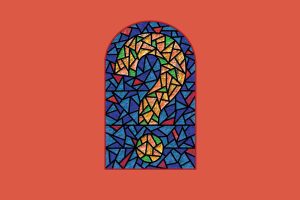Conservative TV personality Glenn Beck told Christians, “I beg you, look for the words ‘social justice’ or ‘economic justice’ on your church website. If you find it, run as fast as you can. Social justice and economic justice, they are code words. . . . If you have a priest that is pushing social justice, go find another parish. Go alert your bishop.”
Unfortunately, statements such as this have left even Catholics, who enjoy a rich social justice tradition, confused.
Socialism is defined as economic or political theories that advocate collective or governmental ownership and administration of the means of production and distribution of goods. The threat perceived by socialism is that it threatens the identity of the individual because it merges the masses into one common goal or voice.
Social justice isn’t an economic or political theory, but an outlook that seeks to strengthen the identity of the individual because it sees that human dignity derives its meaning from being made in God’s image (Gen. 1:26). In God’s image, no one is worth more than another. All are deserving of life and whatever is needed to adequately sustain it.
The church’s mission is derived from the words and actions of Jesus. Jesus reached out to those living on the margins of society because they had as much value in God’s eyes as those living in the center with their power and comfort. Pope Benedict XVI proclaimed in Caritas in Veritate, “If we love others with charity then first of all we are just towards them. . . . Justice is the primary way of charity.”
Social justice means living in right relationship. We must live justly not only with God, but with our neighbor and all of humanity. How we treat the least among us becomes a measure of how well we honor our relationship with God. By honoring the least, we are challenged to look at how they are denied the chance to sustain their own life. If our actions, our consumption, or our materialism make it difficult for others to simply live, then we are not loving our neighbors as much as we love ourselves.
Therefore, while socialism is seen as a threat to individual identity, social justice is a call to honor the life and dignity of each individual, especially the least among us. The fear of socialism begins with a fear of losing one’s identity and material wealth, as well as the ability to experience economic upward mobility. The mission of social justice begins with honoring the identity of each human and realizing the mobility of one depends upon the mobility of all.
Within the mission of the church, each member has a voice to add and a value and worth as an individual. But we must never forget that we are all one body and no one part is more deserving of dignity and life than any other.
This article appeared in the September 2010 issue of U.S. Catholic (Vol. 75, No. 9, page 46).
Image: Flickr cc via DFID – UK Department for International Aid














Add comment